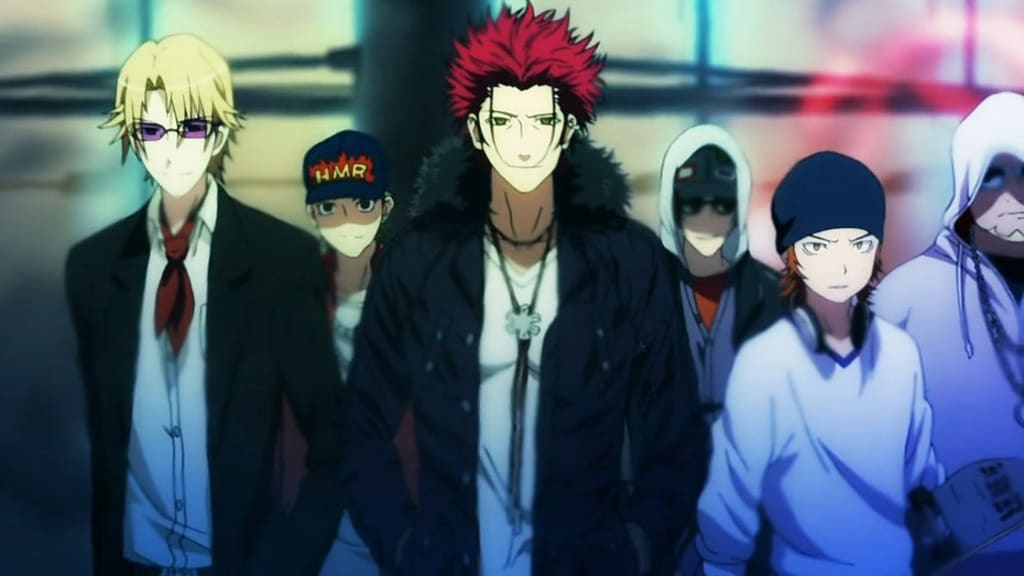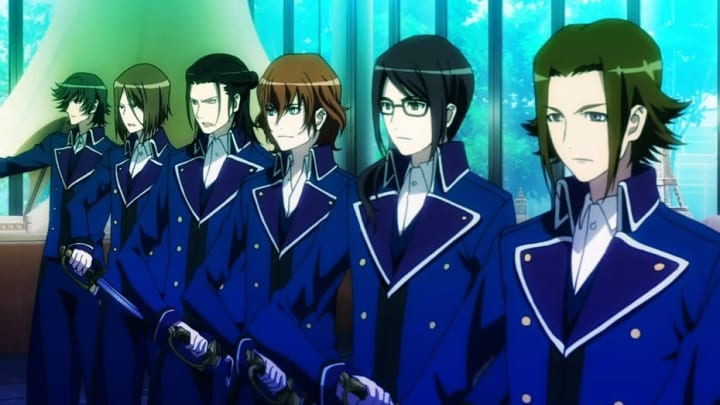Anime's Role in Society
How Shows Like Attack on Titan and Your Name Create a Shared Experience

Anime, a medium that has captured the hearts of audiences around the world, is often known for its stunning visuals, captivating stories, and relatable characters. But beyond the entertainment factor, anime also explores deeper, more complex themes that delve into the human psyche. From trauma and mental health to identity and self-discovery, anime has a unique ability to delve into the inner workings of the human mind.
One of the most prominent psychological themes in anime is trauma and mental health. Many anime explore the impact of traumatic events on characters and how they cope with their experiences. For example, in Attack on Titan, the characters are constantly dealing with the trauma of losing their loved ones and their homes to the Titans. The show not only presents the trauma of the characters but also their struggles with PTSD, depression, and other mental health issues. This not only makes the characters more relatable but also helps to break the taboo of mental health in society.
Another psychological theme that is prevalent in anime is identity and self-discovery. Many anime, such as Your Name, explore the struggles of characters as they try to figure out who they are and where they fit in the world. This theme is especially prevalent in coming-of-age anime, where characters are often struggling to find their place in the world as they transition into adulthood.
In this article, we will be exploring the psychological themes in anime, examining how they are portrayed, and the impact they have on the audience. We will be looking at examples of anime that explore these themes and discussing how they help to promote awareness and understanding of mental health. Ultimately, we will be looking at how anime can be a powerful tool for self-reflection and personal growth.
Common psychological themes in anime:
- Trauma and mental health: Trauma and mental health are common themes in anime that explore the impact of traumatic events on characters and how they cope with their experiences. Many anime, such as Attack on Titan, explore the trauma of losing loved ones and homes to war, natural disasters, or other traumatic events. This not only makes the characters more relatable but also helps to break the taboo of mental health in society. Shows like Attack on Titan, also showcase the struggles of characters with PTSD, depression, and other mental health issues, this could be a way to promote the conversation about mental health and how to cope with it.
- Identity and self-discovery: Identity and self-discovery is another common psychological theme in anime. Many anime, such as Your Name, explore the struggles of characters as they try to figure out who they are and where they fit in the world. This theme is especially prevalent in coming-of-age anime, where characters are often struggling to find their place in the world as they transition into adulthood. Characters often go through a journey of self-discovery as they navigate their relationships, their career, and their personal beliefs. This theme is also used to explore themes of social and cultural issues, such as discrimination, prejudice, and the search for acceptance.
- Social and cultural issues: "Social and cultural issues" is another common psychological theme in anime that deals with the representation and examination of various social and cultural issues in the anime's story and characters. These themes can include issues such as discrimination, prejudice, poverty, and inequality.

For example, an anime like My Hero Academia explores the theme of discrimination against those without superpowers in a society where superpowers are the norm. The show highlights the discrimination faced by the main character, Izuku Midoriya, who is bullied and rejected by his peers for not having a quirk, or superpower. The show also explores themes of prejudice and inequality, as it depicts the societal divide between those with superpowers and those without and the way in which power is wielded and abused by those in positions of authority.
Anime can also be used as a medium to discuss and raise awareness about real-world social and cultural issues. For example, a show like Attack on Titan is inspired by real-world events such as World War II and explores themes of war, genocide, and the human cost of conflict.
In this way, anime can serve as a powerful tool for exploring and discussing complex social and cultural issues and encouraging audiences to think critically about the world around them. It also can be used to raise awareness and promote understanding of these issues, and inspire viewers to take action and make positive changes in their own communities.
Examples of anime that explore these themes:

- Attack on Titan and trauma: Attack on Titan is a popular anime that explores the theme of trauma and mental health. The show is set in a world where humanity is under threat from giant humanoid creatures known as Titans, who have decimated the population and forced the remaining survivors to live behind giant walls for protection. The characters in the show are constantly dealing with the trauma of losing their loved ones and their homes to the Titans. The show not only presents the trauma of the characters but also their struggles with PTSD, depression, and other mental health issues. The show's portrayal of trauma is not only realistic but also helps to break the taboo of mental health in society, and also raises awareness about the mental health consequences of traumatic events.
- Your Name and identity: Your Name is a popular anime film that explores the theme of identity and self-discovery. The movie is about two teenagers, a girl living in a rural town and a boy living in Tokyo, who begin swapping bodies with each other. As they live each other's lives, they start to realize that they have more in common than they thought, and they start to develop a deeper understanding of themselves, their families, and their communities. The theme of identity and self-discovery is prevalent throughout the movie, as the characters are trying to find their place in the world and understand who they are.
- My Hero Academia and social issues: My Hero Academia is a popular anime that explores the theme of social and cultural issues. The show is set in a world where superpowers are the norm, and the story follows a boy named Izuku Midoriya, who is bullied and rejected by his peers for not having a quirk or superpower. The show explores themes of discrimination, prejudice, and inequality, as it depicts the societal divide between those with superpowers and those without, and the way in which power is wielded and abused by those in positions of authority. The show also deals with issues of class inequality and poverty, as it highlights the struggles of characters from lower-income backgrounds who are often overlooked and underestimated by society.
The impact of psychological themes in anime:

A. How these themes resonate with viewers: Psychological themes in anime such as trauma, mental health, identity and self-discovery, and social and cultural issues, often resonate with viewers as they can relate to the characters and their struggles. The realistic portrayal of these themes in anime helps viewers to understand and empathize with the characters, and it creates a sense of connection and shared experience. Additionally, the exploration of these themes in anime can provide a sense of validation for viewers who may be dealing with similar issues in their own lives.
B. The role of anime in promoting awareness and understanding of mental health: Anime can play a significant role in promoting awareness and understanding of mental health issues. Through the realistic portrayal of characters dealing with mental health issues, anime can help to break the taboo and reduce the stigma surrounding mental health. By showcasing the struggles and triumphs of characters who are dealing with mental health issues, anime can help viewers to understand that mental health is a common and normal part of the human experience.
C. The potential for anime to inspire self-reflection and personal growth: The psychological themes in anime can also inspire viewers to reflect on their own lives and experiences. The realistic portrayal of these themes in anime can help viewers to understand and identify their own struggles and emotions. By encouraging self-reflection, anime can inspire viewers to make positive changes in their own lives, and promote personal growth and self-improvement. Additionally, anime can also inspire viewers to take action and make positive changes in their communities, by raising awareness about social and cultural issues and encouraging viewers to think critically about the world around them.
Conclusion:
In conclusion, anime has a unique ability to explore and portray complex psychological themes in a way that resonates with viewers. Themes such as trauma, mental health, identity and self-discovery, and social and cultural issues are prevalent in anime and are portrayed in a realistic and relatable manner. This portrayal of these themes in anime can promote awareness and understanding of mental health issues, and inspire self-reflection and personal growth in viewers. Additionally, anime can also inspire viewers to take action and make positive changes in their communities by raising awareness about social and cultural issues. Overall, anime serves as an important medium for exploring and understanding the human experience, and its impact on the audience is undeniable.

FAQ:
- What are some common psychological themes in anime?
- Some common psychological themes in anime include trauma and mental health, identity and self-discovery, and social and cultural issues.
2. How do these themes resonate with viewers?
- These themes resonate with viewers as they can relate to the characters and their struggles. The realistic portrayal of these themes in anime helps viewers to understand and empathize with the characters and creates a sense of connection and shared experience.
3. What is the role of anime in promoting awareness and understanding of mental health?
- Anime can play a significant role in promoting awareness and understanding of mental health issues. Through the realistic portrayal of characters dealing with mental health issues, anime can help to break the taboo and reduce the stigma surrounding mental health.
4. Can anime inspire self-reflection and personal growth?
- Yes, anime can inspire viewers to reflect on their own lives and experiences. The realistic portrayal of these themes in anime can help viewers to understand and identify their own struggles and emotions. By encouraging self-reflection, anime can inspire viewers to make positive changes in their own lives, and promote personal growth and self-improvement.
5. Is there any anime that addresses social and cultural issues?
- Yes, there are many anime that addresses social and cultural issues such as My Hero Academia, Black Clover, Attack on Titan, and many more.
About the Creator
Ashu Bisht
Greetings from Ashu. Thank you for visiting my profile. I am an explorer, a lover a comedian, and also a writer. Follow me and let's have fun together.






Comments
There are no comments for this story
Be the first to respond and start the conversation.